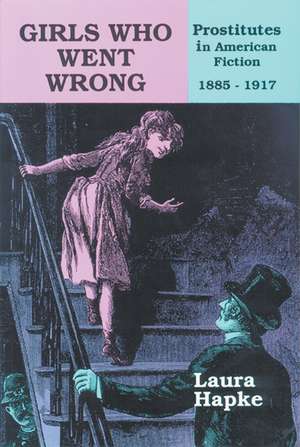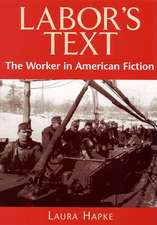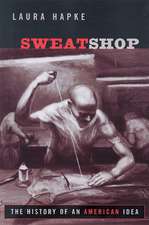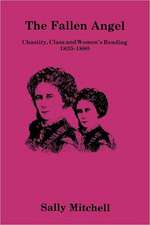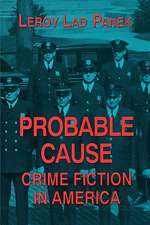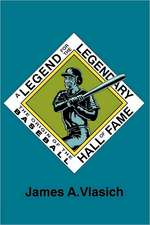Girls Who Went Wrong: Prostitutes in American Fiction, 1885–1917
Autor Laura Hapkeen Limba Engleză Paperback – 31 dec 1988
The period 1885 to 1917 saw thousands of American crusaders working hard to “save the fallen women,” but little on the part of American social protest writers. In this first work on the subject, Laura Hapke examines how writers attempted to turn an outcast into a heroine in a literature otherwise known for its puritanical attitude toward the fallen woman. She focuses on how these authors (all male) expressed late-Victorian conflicts about female sexuality. If, as they all maintained, women have an innate preference for chastity, how could they account for the prostitute? Was she a sinner, suggesting the potential waywardness of all women? Or, if she was a victim, what of her “depravity”?
| Toate formatele și edițiile | Preț | Express |
|---|---|---|
| Paperback (1) | 99.76 lei 3-5 săpt. | |
| University of Wisconsin Press – 31 dec 1988 | 99.76 lei 3-5 săpt. | |
| Hardback (1) | 237.81 lei 3-5 săpt. | |
| University of Wisconsin Press – 31 dec 1988 | 237.81 lei 3-5 săpt. |
Preț: 99.76 lei
Nou
Puncte Express: 150
Preț estimativ în valută:
19.10€ • 20.75$ • 16.05£
19.10€ • 20.75$ • 16.05£
Carte disponibilă
Livrare economică 31 martie-14 aprilie
Preluare comenzi: 021 569.72.76
Specificații
ISBN-13: 9780879724740
ISBN-10: 0879724749
Pagini: 224
Ilustrații: 7 b-w illus.
Dimensiuni: 152 x 229 x 13 mm
Greutate: 0.31 kg
Editura: University of Wisconsin Press
Colecția Popular Press 1
ISBN-10: 0879724749
Pagini: 224
Ilustrații: 7 b-w illus.
Dimensiuni: 152 x 229 x 13 mm
Greutate: 0.31 kg
Editura: University of Wisconsin Press
Colecția Popular Press 1
Descriere
Descriere de la o altă ediție sau format:
The period 1885 to 1917 saw thousands of American crusaders working hard to “save the fallen women,” but little on the part of American social protest writers. In this first work on the subject, Laura Hapke examines how writers attempted to turn an outcast into a heroine in a literature otherwise known for its puritanical attitude toward the fallen woman. She focuses on how these authors (all male) expressed late-Victorian conflicts about female sexuality. If, as they all maintained, women have an innate preference for chastity, how could they account for the prostitute? Was she a sinner, suggesting the potential waywardness of all women? Or, if she was a victim, what of her “depravity”?
